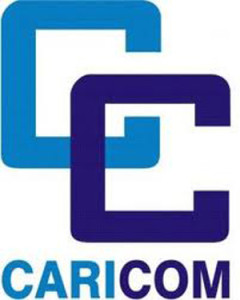Building A Stronger Economy in the Caribbean
 This week over at Global Wire Associates, we took the position that an embargo-free Cuba would yield to better access to basic infrastructure and ICT needs and an improved economy. This leads into a larger conversation about improving the economies throughout the Caribbean.
This week over at Global Wire Associates, we took the position that an embargo-free Cuba would yield to better access to basic infrastructure and ICT needs and an improved economy. This leads into a larger conversation about improving the economies throughout the Caribbean.
President Obama’s recent trip to Jamaica put a spotlight on the many pressing issues affecting the region. The president met with the economic development group Caribbean Community, or CARICOM, on supporting better governance and security through creating more opportunities with sustainable energy. Energy is a huge issue in the region and it seems to be an issue that both Washington and the CARICOM Secretariat can agree on.
Established in 1973 with the signing of the Treaty of Chaguaramas, CARICOM is a group the represents 15 mostly English-speaking countries and serves to provide economic integration and set foreign policy objections for the region. As prime minister of Jamaica at the time, Michael Manley was a strong advocate for CARICOM, and felt that all these post-colonial small islands had more power if they came together in one group to advocate for their own needs and break away from their former colonizers.
“It is critical that the Third World should create its own institutions for savings and development,” Manley said in his controversial book The Politics of Change. “In addition we must develop policies of investment in projects that reflect Third World priorities. It is also important that Third World countries begin to exchange information about technology since… their own technological discoveries are often more likely to be relevant to each other’s problems than the discoveries of more advanced nations. Thus beginning with Caribbean regionalism, a Jamaican foreign policy must be Third World in its economic orientation.”
In the 1970s Manley was an outspoken democratic socialist who was friends with Fidel Castro, much to the chagrin to Washington. During the height of the cold war, Manley had no problem with having an “open foreign policy” that looked beyond political ideology and was willing to trade with communist countries if it served the need. “All countries that are involved in trade do so from the posture of their own political systems and it is a betrayal of national self-interest to fail to seek out in the world at large those points of advantage to one’s own economy,” he writes. However, Manley also said refusing trade on the basis of diplomatic pressure was appropriate at the time with South Africa, Rhodesia (Zimbabwe) and Portugal to protest racism and colonialism.
So CARICOM was born out of a need to organized around the region’s interests and set forth this optimistic view of the future. Fast forward to 1989 when Manley rewrote his book’s epilogue with a softer, more capitalism-friendly tone of wanting to work more with private enterprise. Two decades into CARICOM’s existence and many felt it was living up to expectations. It was also around this time that some Caribbean countries started to be more vocal about creating a single economic market to make it easier to trade and work in other member countries.
In 2001 the Treaty of Chaguaramas was updated with these new objectives and thus created the CARICOM Single Market and Economy which became effective 2006.
However, this week a couple of prominent players in the region’s economy have sharply criticized CARICOM and it relevance. William Mahfood, president of the Private Sector Organisation Jamaica, said that CARICOM has failed to accomplish anything.
“The heads of Government go off to wherever it is, and over the last 20 years that I’ve looked at it; hardly anything has been accomplished out of Caricom. We have a single form for immigration now. But what else has happened?” he said.
Former Jamaican prime minister Bruce Golding said that while it is still important to have a strategic alliance in the region, CARICOM has not lived up to expectations. “… CARICOM member countries should face the reality that the lofty, far-reaching goals set out in the revised Chaguaramas cannot be achieved because the political framework that it requires can never be achieved,” writes Golding in an editorial.
I gather from this that CARICOM is really comprised of 15 countries that have very diverse economies and needs today. What does economic integration really mean in 2015 with rapid globalization? There are now countries wondering out loud if they should stay in CARICOM.
The town-hall President Obama hosted while in Jamaica was really telling of this divide, especially during the Q&A. But it also shows that future leaders of these countries are thinking about these problems and potential solutions, especially in regards to Cuba joining CARICOM. (The Q&A starts at 13:50)